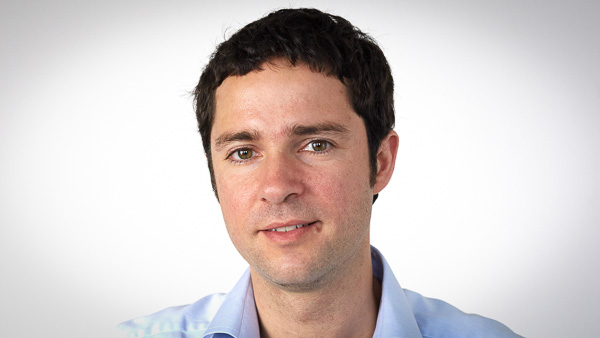
Legal support for Start-ups on a Global Scale – iLINC, the European Network of ICT Law Incubators
Internet startups face many challenges, not least of which are the legal conundrums that often emerge in the fast-moving world of technology innovation. In fact, sometimes even lawyers are not able to determine how startups should shape their products and business models in order to satisfy regulatory requirements. Quite simply, innovation processes are usually faster than the legislator.
Startups do usually not have the funds to pay for expensive legal support, an expense that would be several times higher if the services of lawyers were sought at every twist and turn in the early stages of product and business model development. Lawyers would need to continually update business-to-business or end-user agreements or constantly examine a moving target of conformity with copyright and data protection law.
This fundamental dilemma often results in startups not seeking any legal help at all. This is where tech-focussed, university-based law clinics provide a unique solution – they provide legal support to startups for free, be it for educational or research purposes. It is a perfect match: while startups get help coping with their legal uncertainties, students are trained from the outset, not to become the ‘yes-but lawyers’ of yesteryear, but the progressive and responsible enablers of innovative change in the legal world of tomorrow.
In order to support law clinics in their work, the European Commission has funded the iLINC, the European Network of ICT Law Incubators. With the aim of facilitating thought leadership and the exchange of best practices in providing legal support to startups, iLINC extends worldwide to connect law clinics with ICT startups and entrepreneurs. As an integral part of this project, the Hans-Bredow-Institute together with the Alexander von Humboldt-Institute for Internet and Society hosted the third conference, on the 18th and 19th of May in Berlin. While other core partners of the network, the London-based law clinic qLegal and the Amsterdam-based law clinic CLNC, focussed on the setup of the network and the educational aspects at the previous two conferences, the third conference focussed on the interdisciplinary potential of startup support.
On the first day, the research group “Innovation and Entrepreneurship” illustrated how they do research on the hindering and enabling factors of startup ecosystems by means of their Startup Clinics Berlin, covering challenges related not only to law but also to finance, marketing, human resources, business model innovation and process management. Two Berlin-based entrepreneurs showed how the interdisciplinary research approach helped them to tackle the uncertainty of a startup’s daily life and even to influence the legislation process for the European General Data Protection Regulation: Dr. Tim Polzehl gave with his Mobile Crowdsourcing Marketplace Crowdee the example of an university spin-off and Marc C. Lange, an Innovation & Business Acceleration Consultant, Serial Entrepreneur and a Google Head Expert in this field, demonstrated how legislators can learn from startups operating in an interactive and non-linear innovation environment.
Interesting talk by Crowdee founder Tim Polzehl on reciprocal relationship between legal clinics & start-ups. #iLinc pic.twitter.com/pr7PwiGhh7
— Laurens Naudts (@RoboNaudts) 18. Mai 2015
On the second day, the iLINC members elaborated in several workshops on the future of the international network:
- The University KU Leuven presented together with the Brooklyn Law Incubator and Policy Clinic BLIP on the progress in thought leadership;
- The University of Cumbria showed how to setup a virtual law clinic;
- The special guest Prof. Karl Okamoto from the Drexel University in the US gave (via videoconference) an example of how law students can be trained by means of supra-regional MOOT Court Competitions.
- By occasion of this international get-together, our research team members running our Youtube Channel did not miss the opportunity to catch insights into the most common legal challenges from an international perspective: On our video platform, where entrepreneurs and experts share their knowledge, you can find the newest videos with Jonathan Askin from the Brooklyn Law Incubator and Policy Clinic and Patrick Cahill from the UK law clinic qLegal.
.@jaskin of @BLSLibrary speaking of building global bridges #iLINC #Berlin #startups #techlaw pic.twitter.com/09ArZ72c4E
— Darius Whelan (@dariuswirl) 19. Mai 2015
Last but not least, for anybody who is interested in privacy and law, do not miss the Amsterdam Privacy Conference on the 23rd to 26th October.
Startups and the law – the future is wide open!
Dieser Beitrag ist Teil der regelmäßig erscheinenden Blogartikel der Doktoranden des Alexander von Humboldt Institutes für Internet und Gesellschaft. Er spiegelt weder notwendigerweise noch ausschließlich die Meinung des Institutes wieder. Für mehr Informationen zu den Inhalten dieser Beiträge und den assoziierten Forschungsprojekten kontaktieren Sie bitte info@hiig.de.

Jetzt anmelden und die neuesten Blogartikel einmal im Monat per Newsletter erhalten.
















